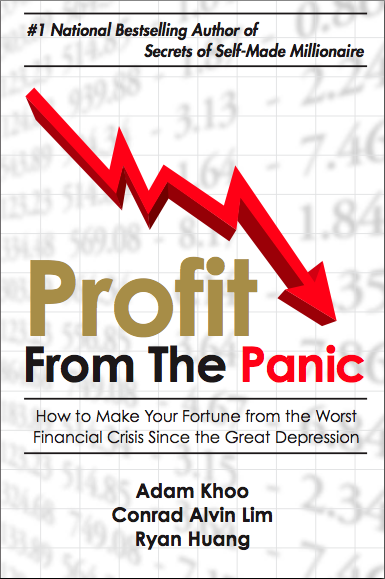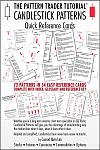Discharged But Still Being Punished
After the relief of being discharged from bankruptcy three and a half years ago, I still find myself in financial jail. This is in spite of the government telling me that I am free of all my previous financial obligations and the fact that I have paid up all my debts to every one of my creditors’ satisfaction.
Why then, can I not get a loan or get an approval for a credit card? (Not that I want a credit card anyway … but as a test of my financial credibility.)
First, let’s get a rough and simple idea of the bankruptcy procedure …
A claim can be made against you for any sum owed by you to another party. If the sum owed is less than $5,000, there is no call for bankruptcy. The claimant has the choice to take the claim to the Small Claims Tribunal. This claim has to be made within six months of the debt becoming overdue. The Tribunal will deem if you are indeed liable to make the payment and will only act as a mediator.
If the sum exceeds $10,000, then you are liable for bankruptcy. This is no longer a case for the Small Claims Tribunal. Legal proceedings will be taken against you via the Courts. Creditors (whom you owe money to) will file a writ against you to make a claim for the money you owe. They can collect the money from you via the legal system or if you are unable to pay, that writ allows them to seize your physical assets such as your private home(s), car(s), hi-fi, TV, insurance policies, bank accounts and anything else that’s not nailed down.
Transferring your assets to someone else before the seizure will not save you as the claimant can and will backtrack all asset ownership to reclaim the assets. This can also get that someone else in trouble if found guilty of conspiracy. You are also not allowed to hawk off those assets before the seizure takes place. Those assets are then put up for sale by a Bailiff’s or Sheriff’s Sale to offset your debts. About the only thing they can’t take is your HDB flat, your CPF and your dignity.
Whatever outstanding claims remaining after the Bailiff’s or Sheriff’s Sale is then filed with other unpaid debts into a system that tracks your financial credibility. This system is known as the Credit Bureau (Singapore) Pte Ltd. It is run by an independent (non government) organization and is not responsible for the filings – this is the job of the company that recorded the debt against the bankrupt.
You become a bankrupt after being called to the Supreme Court and officially being declared a bankrupt by the court. Being a bankrupt is not a criminal offence and hence, does not warrant an imprisonment sentence of any kind.
Business failures not of criminal circumstances do not warrant any sort of criminal investigation. Failure to pay up a debt on your credit facilities also does constitute a criminal offence. Failure to honor your obligation as a guarantor and failure to honor guarantees are also not criminal offences. Thus you will not be imprisoned for any of the above circumstances.
You cannot be imprisoned for such financial issues unless the circumstances were deemed criminal by the Corrupt Practices Investigation Bureau (CPIB) or the Criminal Investigation Department (CID). Such activities include embezzlement, cheating, unlawful business activities, criminal breach of trust, misuse of corporate funds for personal gains, etc.
As a bankrupt, you are now protected from creditors. Your “protector” is the Official Assignee (OA) who will now be in charge of your case till you are discharged. Amongst the OA’s duties is to make sure you pay your debts. This can be done through monthly installments. It is the bankrupt who decides how much a month will be paid. The amount of the installment will dictate how long you stay a bankrupt – pay more, get out faster or pay less and stay a bankrupt longer. A POSB account will be the only account you will be allowed to own as a bankrupt. It is from this account that the installments will be deducted. Contrary to common belief, the OA does to help themselves to all your monies. In fact, their other duty is to encourage you to save and develop proper financial habits in order to pay off your debt sooner.
You are not allowed to own a company, be a director of a company, take on risky businesses such as trading/investing or participate in any financial activity that is deemed as a further liability to your current state of bankruptcy without the OA’s permission. You are also not allowed to leave the country without due notice and approval from the OA. Failure to abide by these rules is punishable with imprisonment. You are also obligated to disclose your bankruptcy status to any potential employer if you are seeking a job.
And since the Credit Bureau keeps a record of our financial status, it is impossible for a bankrupt to get a credit card, loan or even a fixed deposit account with any bank. Personally, I will tell you not to hope to get any help from them at all. You also won’t be able to own or open a telco account for a mobile phone, internet services or any telecommunication account. In short, but not conclusively, you cannot have any sort of bill.
During bankruptcy, you will be required to declare your Income & Expenditure (I&E) on a regular basis. This can be done online today which makes it very easy and inexcusable not to do so. Failure to do this will result in the bankrupt being “red-zoned”. This will reduce the bankrupt’s credibility and make it more difficult to get privileges such as getting approvals for travelling for example.
Unlike in the past, there is no more “automatic discharge” from bankruptcy. Debts today must be paid. When a bankrupt has paid up his debt, the OA will require the bankrupt to fork out some more money to pay for the press notices and other miscellaneous administrative costs. The press notice is to inform everyone that you, the bankrupt, are seeking a discharge and for anyone who opposes this for any reason pertaining to your debt, to make a claim or a charge to block your discharge.
If the OA deems it so, you will have to settle that dispute in order to make another attempt to get your discharge.
Assuming there are no blocks, your discharge will be issued within a couple of months and you are free of financial obligations because your discharge wipes your financial slate clean of any debt. The process can be hampered if you were “red zoned” and it could take longer to get a discharge if you were not a cooperative or compliant bankrupt and gave your OA a lot of trouble. You will still get your discharge and your slate will be wiped clean at the end of the day. But …
If you owe the Central Provident Fund (CPF) Board any money, this will be claimed by the board, regardless of your discharge. This is the one debt that you must pay in full. Failure to do so … well, its the CPF … you go figure what it means if you don’t settle their debt.
Now that you are “free” you can own a business, be a director, travel and do everything a normal citizen does. Well, almost.
And that is how bankruptcy works … in a rough sense. Please check with your legal council on the details of the process and requirement or with the OA’s office at their homepage: www.ipto.gov.sg/
Bankruptcy is not entirely a bad thing especially for those with no way out. The stigma is undeniable. The reality of being declared a bankrupt is traumatic and shameful. It is the ultimate acceptance (not that you have a choice anyway) of failure. But these are only temporary emotional setbacks that one should get over quickly. Too often, bankrupts hide in their shame, become recluses and live in denial. They lie to hide their shame and they put up a brave front in public only to weep to themselves in private.
But the truth is that the shame is only in their minds and that no one really bothers about their problems and they could care less. Thus, there is no real reason to feel badly about being a bankrupt. It was a mistake that anyone is capable of falling into and yes, it is a terrible price to pay. But it is also the most precious lesson to take if one is able to turn such a failure around by learning from this mistake.
The fact is that those who turn their fortunes around go on to greater things in life. I have not met any successful person who did not make mistakes or did not have major failures in their life. But these successful individuals had one mindset in common – they were willing to accept their mistakes, learn from it, never give up and strive to better themselves.
A failure is complete only when one gives up. It is never a failure if one never quits and uses the failure to pursue a higher level of success.
After all, the worst has already happen. What have you got to lose now?
And now, for the part that many don’t know about … financial jail after the discharge.
I was told that discharged bankrupts are usually denied any sort of financial help from financial institutions for up to seven years. Then someone claimed that it was only a five-year wait. A financial “expert” also declared that it was a three-year “jail term”.
Its been three years since my discharge and still the banks are denying me assistance on a loan on my next home. My wife more than qualifies on her own to take that loan but this experience is leaving me with a bad taste regardless.
Let’s get the record straight – discharged bankrupts will be denied financial assistance for seven years from their discharge. This record is kept on file at the aforementioned Credit Bureau. Regardless of who you are or how successful you are, you will be promptly rejected by any institution should you want to get a loan, a credit facility, open a fixed deposit account or trading account. Your rejection is swift and without recourse and you will be out of the bank within 3 minutes of your application submission … embarrassed and humbled no doubt. The bank won’t even tell you why you were rejected. You just are.
The truth is that they ran your ID through the Credit Bureau system and saw your status and that’s why it takes only a few seconds to get your rejection without an explanation. You can’t bargain with them, reason with them or show them how much money you have in your savings to justify your application. No means no – no exceptions.
What I find ironic is that this efficient system is also screwing you up without your knowledge.
Banks these days are fond of pre-qualifying you for a credit facility even if you don’t ask for it. That’s how you get blank cheques and pre-approved credit cards in your mailbox. What you don’t know is that they run your ID through the Credit Bureau system to qualify you.
This is how this unscrupulous practice has screwed me up; long before my loan application, a couple of banks had run me through this system only to get a rejection instead of an approval for credit card applications … twice! And I didn’t even apply for any of these facilities. Why this is such a terrible practice is because every time you get rejected, that rejection is recorded in the system and your credit rating gets worse and worse with each rejection … without your knowledge or consent. Now you know why you sometimes can’t get the full loan you applied for even after doing your math.
Another astonishing flaw in this system is that claimants (who claim a debt against you) can conveniently forget or overlook removing their claim even after the claim had been settled for a few years. These claims remain in the system to continue to screw up your rating and the Bureau is not responsible for checking or updating the data as it is the responsibility of the claimant to do so.
Something else that screwed me up was a claim by A__X in 2005 for a $500 debt against me. Apparently, I owed A__X $500 but where this debt came from or what it was for, even A__X didn’t know. Here’s the real clincher – I wasn’t even a card member and I couldn’t have been because I was still bankrupt! To be fair, A__X promptly removed the claim after some vociferous threats from yours truly to their Malaysian headquarters after getting the run-around for two weeks.
I find it totally amazing that the banks have such a reliable central system to reject such applicants as myself but don’t have a central system to tell them which credit users are over-leveraged and unable to settle their debts. In fact, it seems like they would rather lend money to those who don’t have money and obviously don’t have the means to manage such huge debts than lend money to those with the means to repay their debts who obviously have the collateral to make a case for a loan.
Whatever.
Banks today are not what they used to be and definitely not what they advertise themselves to be. I can’t wait for this credit bubble to pop and see some of these banks go bust under the weight of their own greed and self-serving principles. What’s sad about that scenario is that I have plenty of friends in banks who are likely to lose their jobs if it happens. I don’t think I could stand that while watching the greed-mongers keep their jobs.
Now with COEs at $72,000 and the CPI threatening to hit 4% by year’s end, you have to ask why prices are all up there. Its not because of demand nor shortage nor inflation as a result of demand on shortage … its because of cheap money. I’ve said it before so I won’ say it again but it will be interesting to see what happens if the government raises our monetary policy again in a fruitless effort to fight inflation that is not entirely because of an inflationary nature but rather that of a flood of cheap money.
Watch your spending and keep your expenses within your means. If I am right, we’re in for another rough ride in our economy and you don’t want to be one of those who end up bankrupt … the nightmare doesn’t end with your discharge, I promise you.
If you enjoyed this post, please consider to visit Pattern Trader Tools, leave a comment or subscribe to the feed and get future articles delivered to your feed reader.






































Hi Conrad,
After going through the detail of your blog, its already very depressing merely by reading what will happened to a bankrupt, can’t imagine going through it day in and day out of it. Although I am not rich nor particularly money savvy, other than the housing loan fron HDB, I dont owe any bank or any financial insituitions anything, for that, I am grateful for. Thanks for sharing, it will make all the readers out there more careful with their spending.
God bless and happy new year ahead